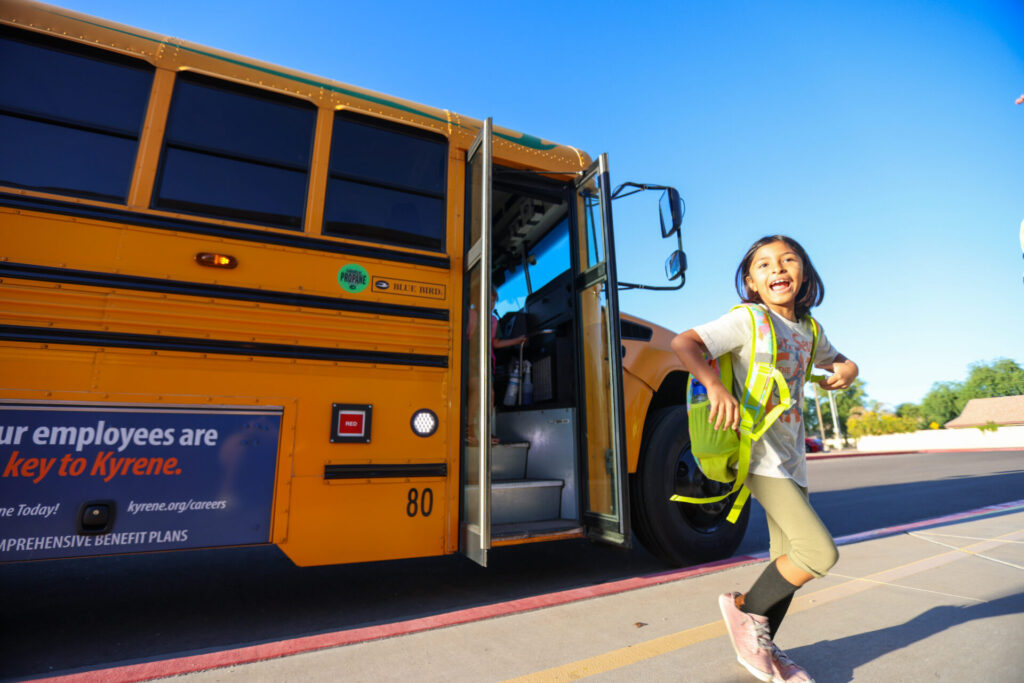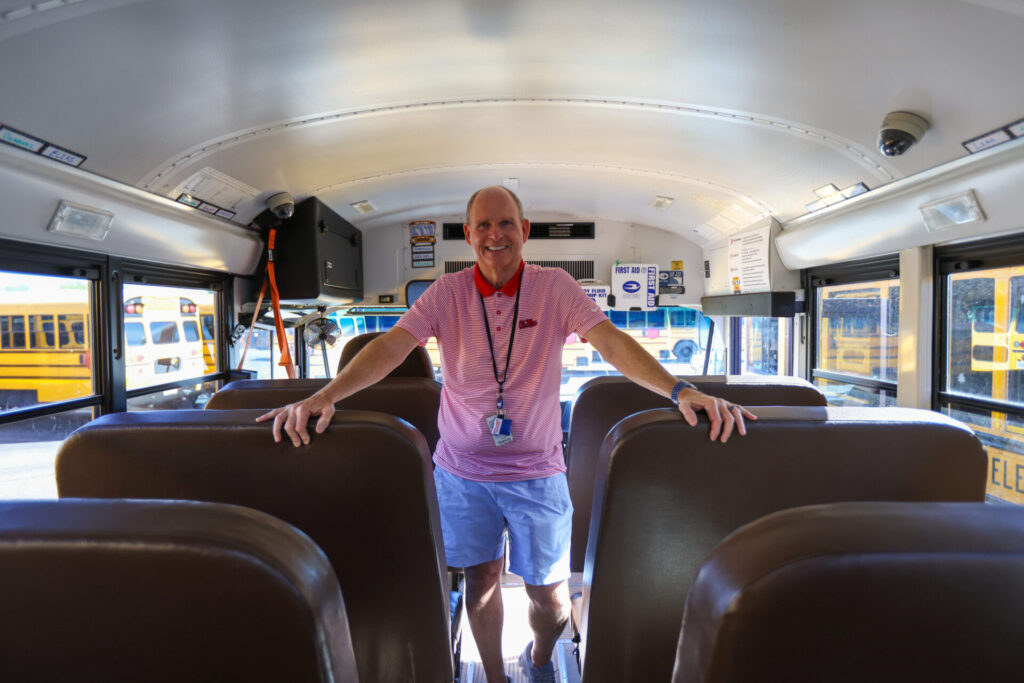While school bus driver shortages continue nationwide, Tempe/West Chandler schools seem to be bucking the trend and managing the challenge through planning and innovative strategies. The situation isn’t new, but all three districts— Kyrene, Tempe Union and Tempe Elementary — are earning high marks for their efforts to avert possible shortages.
“Getting school bus drivers has been notoriously difficult for years,” said Michele Parmley, director of transportation for the Kyrene district. Kyrene has dedicated substantial effort over the past few years to create a system that not only addresses the national shortage but appears to meet the needs of its students and families.

Despite challenging situations in 2021 and 2022, when Kyrene faced driver shortages, personnel from the transportation office, including Parmley, filled in for missing drivers. They successfully weathered the storm. As a result, planners established a system that minimizes delays and disruptions. “Kyrene is proud to have safe, friendly, efficient and on-time bus service,” said Erin Helm, executive director of district communications, via email.
The COVID-19 pandemic exacerbated the driver shortage situation when drivers left due to health concerns. Some districts altered bus routes and staggered start times, while others had to cancel classes or reduce transportation services. This prompted local districts to become more creative in reimagining their transportation plans to combat the shortage. Coupled with recruitment and retention challenges, along with driver pay issues, the pandemic created a perfect storm on top of the already challenged industry that brought the situation to light, said the CEO and executive director of the National Association for Pupil Transportation, Molly McGee-Hewit, in a recent online update. Before the pandemic, recruitment, retirement and retention were already challenges faced by Tempe’s schools.
Jessica Palmer, director of transportation and school safety with the Tempe Elementary district, said via email that the driver shortage is not unique to their district, exacerbated by individuals who decided to retire early, further straining the available workforce. The pandemic also created alternative job opportunities, intensifying competition not only with other school districts and charter schools but with industries that employ commercial driver’s license, or CDL, drivers, such as Amazon, UPS, FedEx, logistics charter bus services, sanitation, and more.

Still, the Tempe Union district reported no shortages or disruptions at the beginning of this school year, according to Sam Gonzales, district transportation director. Another challenge the schools faced was finding individuals willing to work a split schedule, which typically involves morning and mid-afternoon shifts. But for some, that’s ideal. Danny Swancey, a 67-year-old school bus driver with the Kyrene district, loves the arrangement. Having retired from the Mississippi Postal Service after 32 years, he said he was drawn to the bus driver job due to the ample time off it offers. Swancey takes advantage of this by indulging in his passion for hiking between shifts. He says he loves to hike, and in fact, as soon as his morning assignment ended, he headed out for a hike.
The day we interviewed him, he texted a photo of himself at the top of Telegraph Pass in the area of South Mountain. The photo came in at 10:42 a.m. Swancey also appreciates the flexibility of the job, which allows him to enjoy outdoor activities while earning a steady income. Swancey said he cannot think of a better job for someone over the age of 55. Competitive wages and benefits have played a significant role in attracting and retaining school bus drivers for Tempe schools. Swancey said that Kyrene paid for him to get his CDL license, and he earns around $20 per hour, along with a generous amount of time off, including six holidays. Additionally, he is part of the state’s pension plan, a significant advantage.
Jessica Palmer said that Tempe Elementary bus drivers start at $18.01 an hour, offering great daytime hours on weekdays without the necessity of night, weekend or holiday work while also providing opportunities for growth and paid training. At all three districts, leadership and support appear to have proven instrumental in maintaining a positive work environment. TUHSD’s Megan Sterling cites the work of Sam Gonzales, district transportation director, attributing the lack of issues the district has encountered to his effective leadership skills. Driver Swancey noted that, for him, it is the supportive environment that makes driving such a great job. Kyrene Transportation Director Parmley, for example, makes an effort to remain close to the drivers, having parties with them, playing games etc.
“I look forward to going to work every day and didn’t used to in my other jobs,” he says. Ultimately, seems to matter most to all these school districts is the commitment they hold to the students they transport daily. Those who manage transportation services acknowledge that it takes a special person with patience and grace to be a school bus driver, as they play a crucial role not only in getting students to school but in being a supportive and trusted adult in the students’ lives. As for Gonzales, he emphasizes the value of the media spotlighting his chosen field, noting that school bus drivers can make a profound impact on students’ lives beyond just providing transportation. “Particularly when it comes to showcasing the importance of the job,” he said. “Our drivers not only get kids to where they need to be to learn, but they can also be another supportive and trusted adult in their lives, and that is important.”

